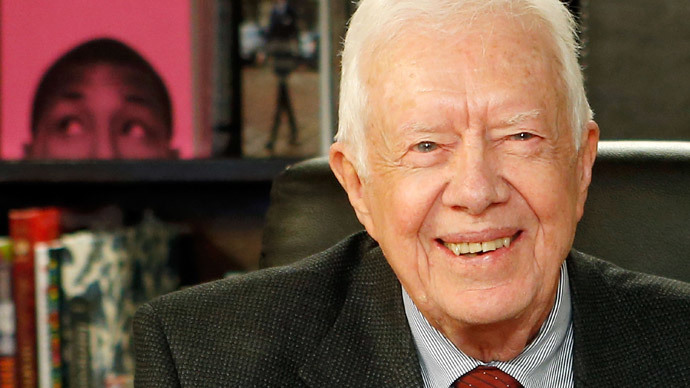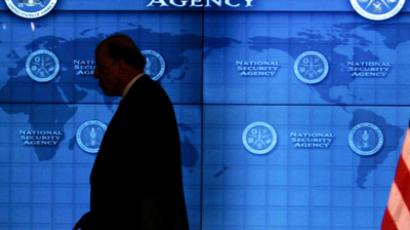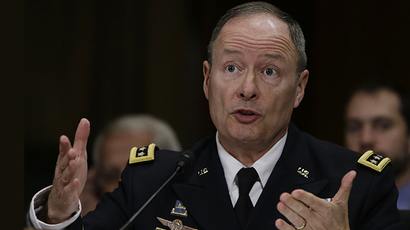NSA chief: We don’t spy on Jimmy Carter

Don’t worry, Jimmy Carter: the chief of the National Security Agency says that the former president of the United States isn’t the subject of any domestic surveillance operations waged by the NSA.
Carter — a Democrat who served one four-year term as commander-in-chief starting in 1977 — made headlines earlier in the week when he admitted on NBC’s “Meet the Press” news program that he assumes his own emails and phone calls are being collected by the secretive spy agency.
“I have felt that my own communications were probably monitored. And when I want to communicate with a foreign leader privately, I type or write the letter myself, put it in the post office and mail it,” Carter said, “because I believe if I sent an email, it will be monitored.”
NSA Director Keith Alexander responded to those remarks during an interview that aired Tuesday on the Fox News program “Special Report with Bret Baier,” and assured the former president that he isn’t being perused by intelligence community spies.
"We're not [monitoring the emails]," Alexander said. "So he can now go back to writing emails.”
“I mean, reality is we don't do that. And if we did, it would be illegal and we would be found, I think, held accountable and responsible,” the out-going NSA director insisted.

The former president is now the latest international figure to voice concerns about a surveillance program operated by the NSA that some say has run amuck. Revelations about widespread spy programs made public last year after classified documents were disclosed by former government contractor Edward Snowden continue to cause high-ranking officials to condemn the NSA, and Carter’s remarks were made in the shadows of similar complaints from the likes of Brazilian President Dilma Rousseff and German Chancellor Angela Merkel.
But while Carter may be the only former US president to accuse the NSA of eavesdropping on private conversations, his recent remarks are far from being the first time he’s spoken in opposition of the surveillance programs.
“America does not at the moment have a functioning democracy," Carter said at an event in Atlanta, Georgia last July, only weeks after Mr. Snowden’s first NSA disclosures were made public.
"[The justification for surveillance] has been extremely liberalized and, I think, abused by our own intelligence agencies," Carter added to NBC’s Andrea Mitchell on Sunday. "I think it's wrong," he said of the NSA program. "I think it's an intrusion on one of the basic human rights of Americans, is to have some degree of privacy if we don't want other people to read what we communicate."
Alexander, however, has adamantly defended the NSA’s practices, as evidenced as recently as other comments he made to Baier during Tuesday’s broadcast.
“We don’t have Americans’ emails or [the] content of their phone calls in that database, it’s just numbers, it’s just the call detail records,” he said, which all three branches of government has previously considered to be legal. That debate has been rekindled, however, in the light of last year’s NSA disclosures.
Gen. Alexander is expected to retire in the coming months and be replaced by US Navy Vice Admiral Mike Rogers, who like his predecessor will also man the helm of the US Cyber Command.














